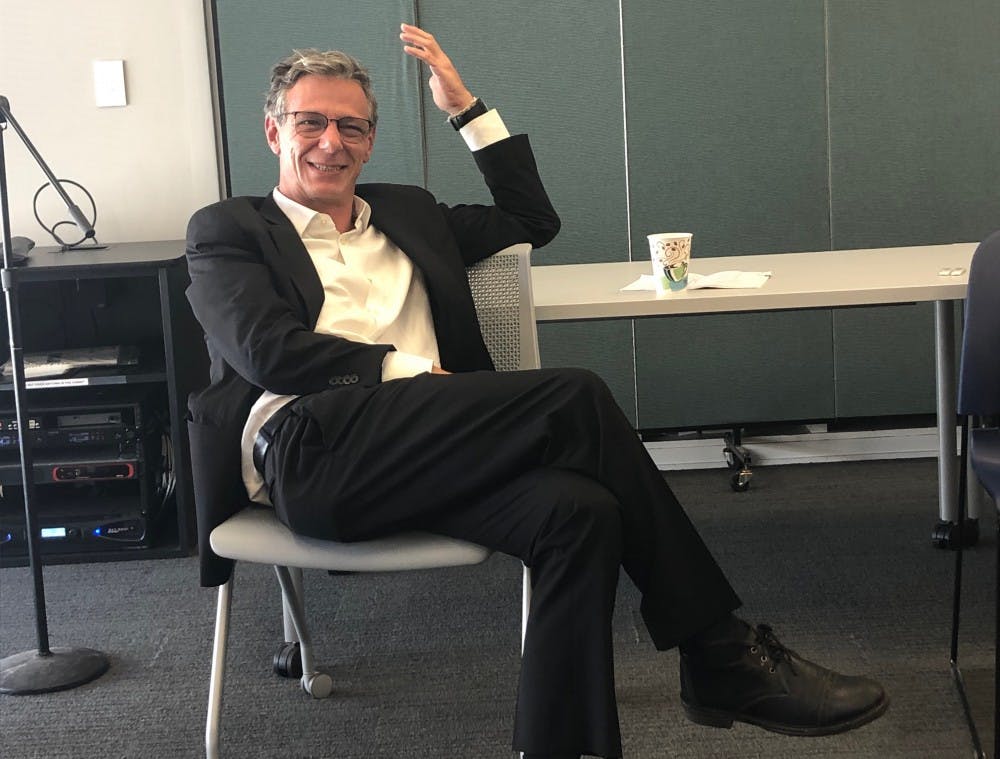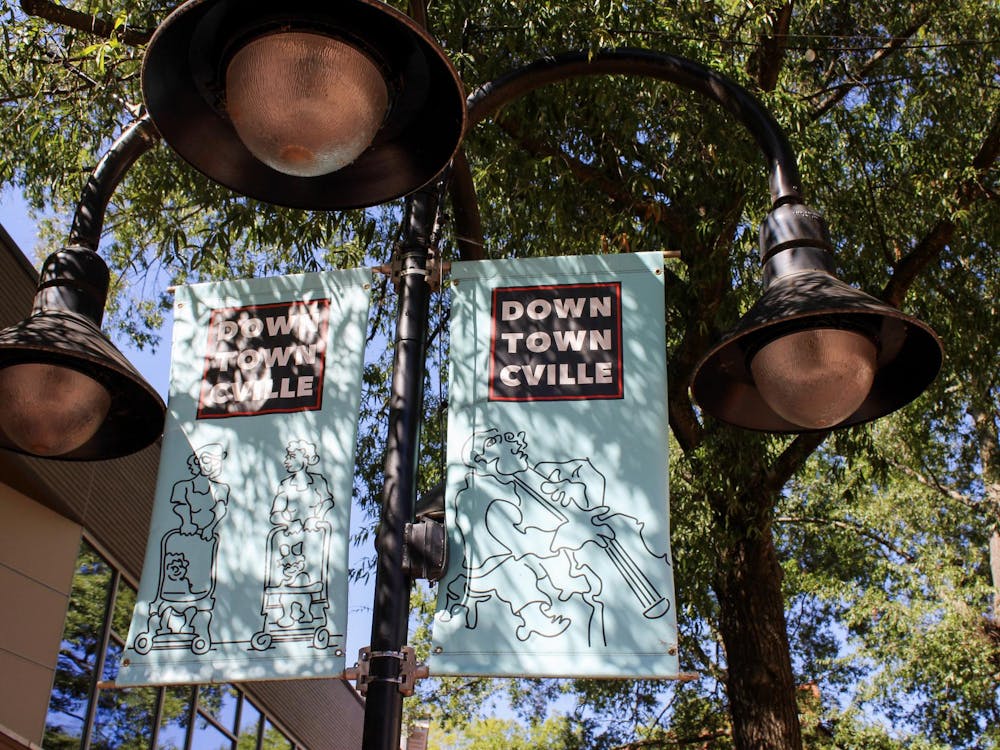Álvaro Enrigue was everywhere Sept. 19. More literally, he was at the University Bookstore Mezzanine, where he gave a craft talk — which turned into much more of a swirling, philosophical intervention into the archival work and authorship done by Catholicism at large — and a reading from his forthcoming work, currently titled “Now I Surrender.” The author spoke on his process and his history, and shared his disjointed thoughts — “Pope Francis then eats his fruit loops” being one of them — to students craving inclusion in his unique and vibrant perspective.
This writer likes to tell out-there stories. In “Sudden Death,” he writes of a violent and bizarre tennis match between Baroque painter Caravaggio and the poet Quevedo, played with a ball made from Anne Boleyn’s hair. To better understand his character, Enrigue traveled from country to country to see 42 Caravaggio works. This is why his stuff is time-bending, molding and mocking. He dives into a previously closed conversation, a long-ago time in artistic creation, and asks questions from nowhere like, “but wait, did you think tennis was only for contemporary masters?” Álvaro Enrigue won’t just change your mind, he’ll flip it around all anew, bounce and serve it with baffling delight.
This is him from his 2013 novel “Sudden Death” — “We are who we are, unfixable, f—ked. We wear tennis shoes.” The words of Enrigue should stay unfixed, inquisitive and violating of historical pleasures we abide by that he ventures to indulge in investigating.
Before really starting to read, he lingered on the trials of translating his books, originally written in Spanish, to English. His comments were complimentary of his translator, “Her Majesty Natasha Wimmer,” while also acknowledging the humor in it all — “My English isn’t precisely Shakespearean.”
The translation didn’t lose any of the glory crafted in Enrigue’s vision of Mexico, and images like “yellow scorpions the size of a child’s hand” gave life to the Bookstore’s Mezzanine, a righteously inadequate space for the scope of Enrigue’s world. “The boy from Mexico City reading at the University of Virginia,” he revealed once standing behind the podium. He exudes comfort and humor, a wonderfully light and unpretentious writer who writes with talent deserving of pretension.
“It’s clearly a Western,” he said of “Now I Surrender,” which he chose to read from because, as he previously noted, he would have trouble keeping down his lunch if he read another word of “Sudden Death” aloud. Although about the author’s country of origin, Mexico, and the harsh valley life of the Apache, “Now I Surrender” is not Cormac McCarthy’s image of a faded cowboy. It is in conversation with the trope of the American Western white male McCarthy so adamantly clung to in his work by reclaiming the narrative of the stolen ground.
“Geronimo was Mexican, not American,” Enrigue said when Arts and Entertainment inquired a characterization of the work. He responded with a sensitive thought on the reaction many are having to the changing of Imperial America’s depiction in history. He plays with the misconceived, violent nature of the Apache by charging his words with humanity for populations still so misunderstood.
“I begin to cook books decades before I write them,” Enrige said. In the midst of his craft talk, he answered questions about his widening archive, while also providing his critical view on turning literature into an “HBO series,” voicing his frustrations on the simplification of good literature through television remakes. Think Virginia Woolf, he suggested. Atop each other, his suggestions during the craft talk became more a philosophy than considerations for aspiring writers.
“This is the worst craft talk,” he said, laughing. The audience laughed too, disagreeing fondly, not wanting it any other way.
Enrigue did not provide a better grip on when his next book was coming out. “Sometime in the 21st century” was his estimation. Readers will be left to wait, jumpy and expectant of an expedition into the past, rooted in the sensitivity of a writer concerned with the instability of the present.







